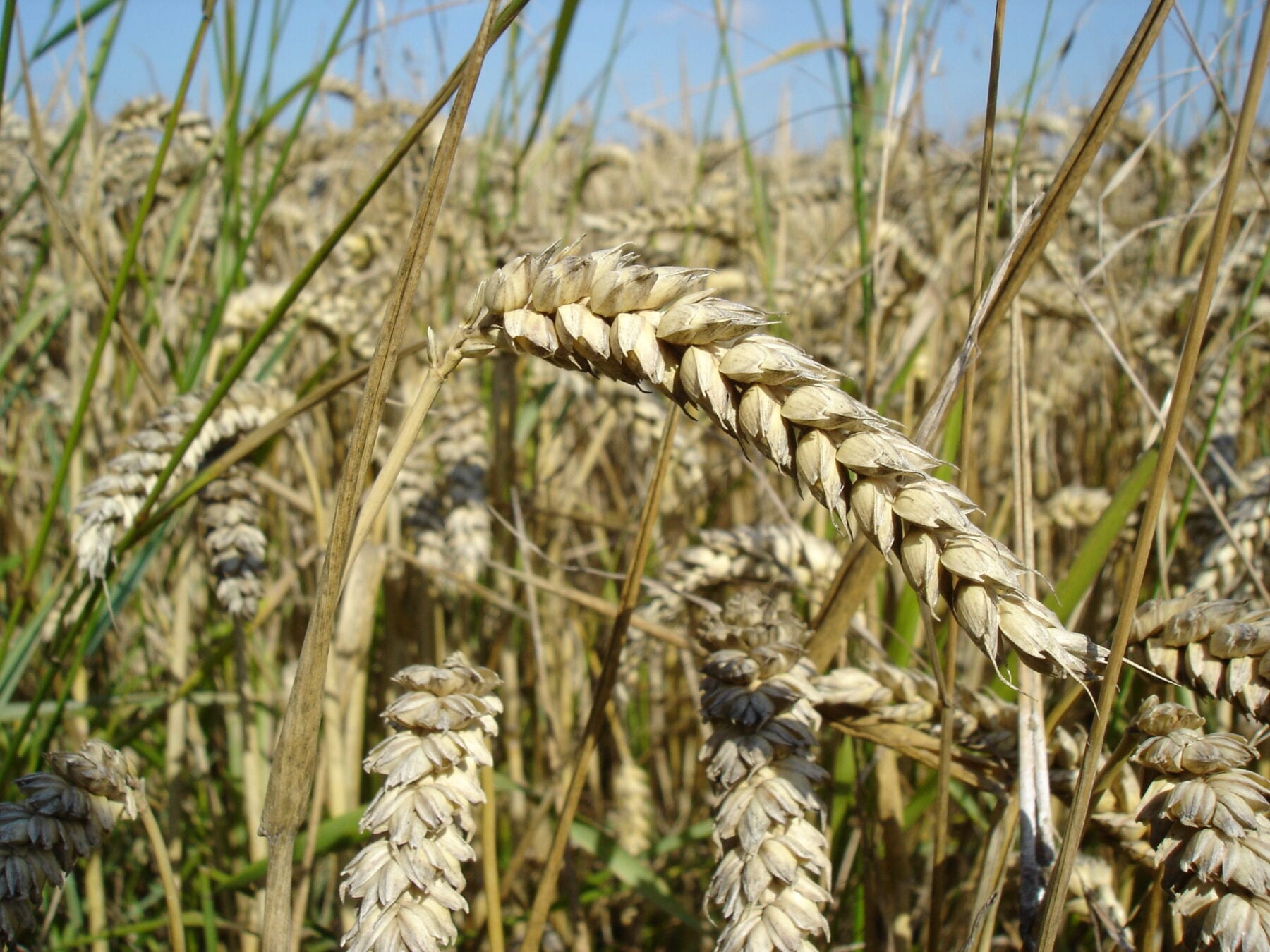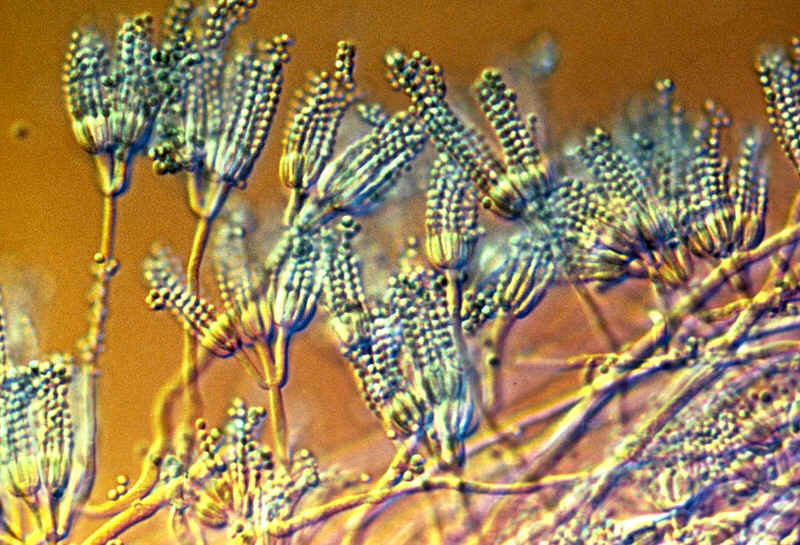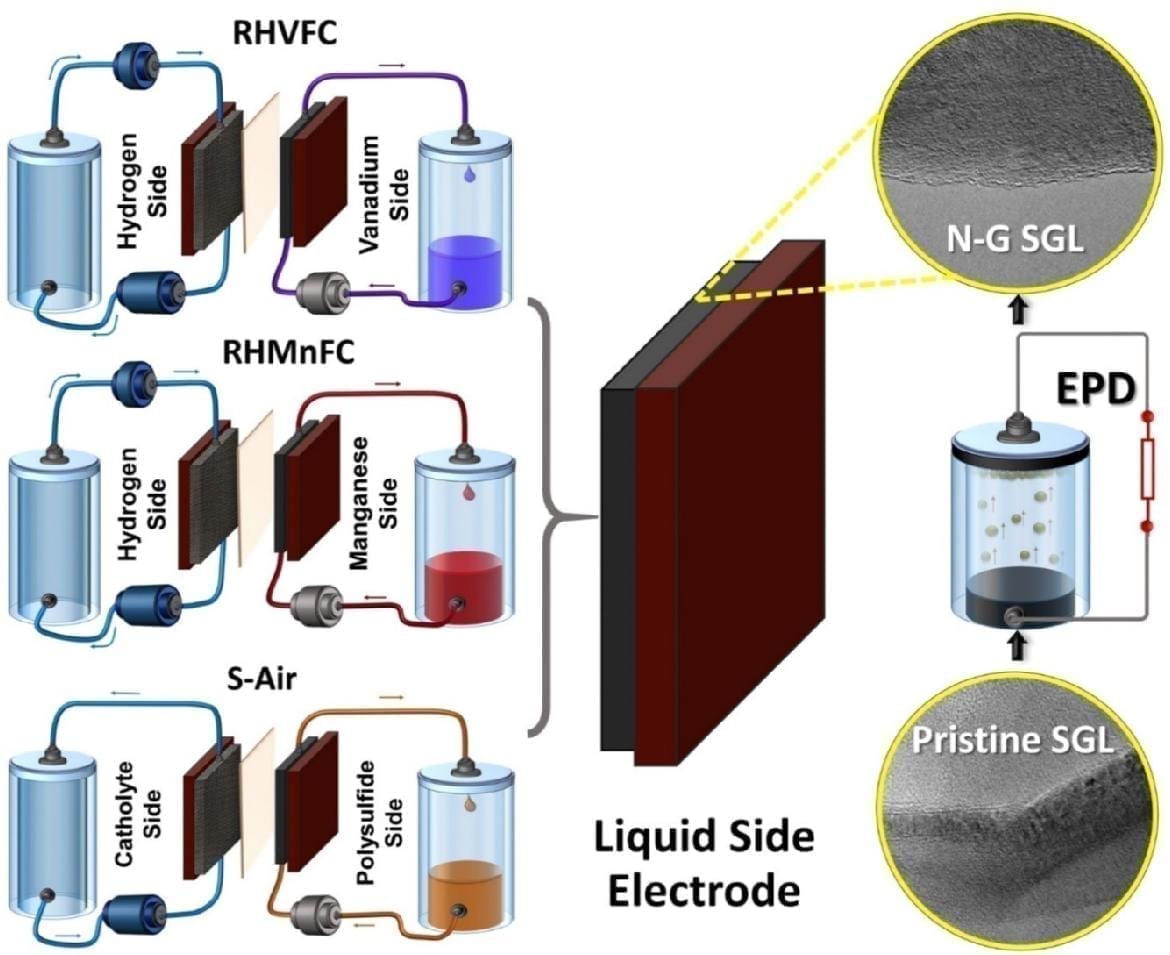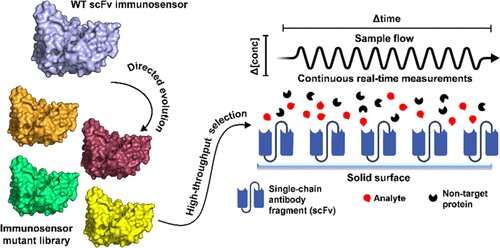
via Wikipedia
Researchers at the University of Copenhagen have demonstrated that unique fungi strengthen the “immune systems” of wheat and bean plants against aphids. Fungi enter and influence the amount of a plant’s own defences, resulting in fewer aphids. The results could serve to reduce agricultural insecticide use and bring Denmark a step further along the path towards its green transition.
Certain fungi are able to establish a close rapport with plants that results in fewer insect infestations and thereby less damage to crops. Until now, it was unclear how these fungi could be used to reduce insect infestations.
“In order for us to really use fungi to control agricultural pests in the future, we need to understand the mechanisms and processes behind their activity. So, it’s very exciting that we have managed to advance a step closer”, says Associate Professor Nicolai Vitt Meyling of UCPH’s Department of Plant and Environmental Sciences.
Fungi strengthen the “immune systems” of crops
The researchers studied three types of fungi to compare their effects against aphid infestations on wheat and bean plants:
“It turned out that two of these fungi were able to effectively reduce aphid infestations by establishing themselves in plant roots and tissues. By combining greenhouse-based experiments with advanced chemical analyses, we can see that the fungi cause plants to increase production of their own natural defences, thus strengthening plant “immune systems”. This translates into fewer aphids, which would otherwise weaken a plant”, says Nicolai Vitt Meyling, who explains:
“When aphids suck up plant sap, plants lose energy, to the detriment of their root networks and overall growth. However, when fungi-treated plants were attacked by aphids, they were able to compensate by increasing root growth, so that they didn’t lose growth potential. Plants left untreated with the fungi couldn’t compensate for the attack,” says Nicolai Vitt Meyling.
The researchers “treated” wheat and bean plants by applying fungal spores to seed, from which the plants were then germinated and cultivated. They then added a few aphids and observed how many more aphids developed over two weeks in the greenhouse. Thereafter, plant leaves underwent chemical analysis in collaboration with researchers from Aarhus University’s Department of Agroecology.
“We see a clear correlation between an increased amount of defence substances in and fewer aphids on the plants treated with two of the fungi. Those plants left untreated with the fungi had lesser amounts of defence substances and more aphids. There is simply a marked upregulation of defence substances in a plant under aphid attack when these specific fungi are present. And, the same treatment produces the same result in both wheat and bean plants,” says Nicolai Vitt Meyling.
Thus, the researchers could see that the effect is related to the fungi and not the plant species. The same fungi had the same effect in both the wheat and bean plants, despite the two types of plants not being related and expressing different kinds of defence substances.
Swapping out insecticide for fungi coated seed
The fungi also have an effect on insects that attack the root systems of plants. And, in combination with other environmentally-friendly cultivation methods, could help to reduce insecticide use in agriculture.
“The fungi has the potential to reduce the need for insecticides because treated seeds result in fewer aphids in the field. If we can develop a large-scale method of pre-treating seed with Danish seed producers, to coat plant seeds with these fungi before planting, we may hardly need to spray with insecticides,” says Nicolai Vitt Meyling, who concludes:
“Limiting pesticide use is an important aspect of the green transition. This can be an effective and sustainable contribution towards such a reduction.”
The next step is to engage in longer term field trials of treated plants. This will allow researchers to gauge the longevity of effects under realistic growing conditions.
The Latest Updates from Bing News & Google News
Go deeper with Bing News on:
Plant immune systems
- Fungal resistance in plants associated with heritable differences in microbiota abundances
Sunflowers aren't just beautiful symbols of summer—they are also economically significant, ranking as the fourth most important oilseed crop in the world, and new research suggests that some bacteria ...
- Found: the dial in the brain that controls the immune system
Scientists identify the brain cells that regulate inflammation, and pinpoint how they keep tabs on the immune response.
- 5 Reasons to Eat More Mushrooms
Promising evidence suggests a positive impact of mushrooms on immune function, gut health and weight management. Mushrooms contain prebiotic fiber and bioactive plant compounds like polyphenols and ...
- Unlocking the immune system: cGAS-STING pathway offers new hope for cancer treatment
Cancer immunotherapy, which leverages the body's immune system to target tumors, has emerged as a pivotal strategy in oncology. This paradigm shift from conventional treatments offers a more precise ...
- Unlocking the immune system: cGAS-STING pathway offers new hope for cancer breakthroughs
A groundbreaking study has recognized the cGAS-STING signaling pathway as a formidable ally in the immune system's battle against cancer. This ...
Go deeper with Google Headlines on:
Plant immune systems
[google_news title=”” keyword=”plant immune systems” num_posts=”5″ blurb_length=”0″ show_thumb=”left”]
Go deeper with Bing News on:
Fungi coated seed
- Fungal resistance in plants associated with heritable differences in microbiota abundances
Sunflowers aren't just beautiful symbols of summer—they are also economically significant, ranking as the fourth most important oilseed crop in the world, and new research suggests that some bacteria ...
- New coating for produce storage containers repels bacteria, fungi, dirt
A team of Texas A&M University College of Engineering researchers has developed a new coating that can be applied to galvanized steel food containers where it reportedly repels bacteria and fungi, is ...
- Wax coating to protect produce from bacteria, fungi
The wax coating technology is expected to bolster the safety of fresh produce and offer enhanced protection against bacteria and fungi, as well as providing both immediate and delayed antibacterial ...
- Biotech startup raises $100 million to tackle agricultural problem using fungi: 'There's so much we don't know about this incredible group of organisms'
It uses a microbial fungi-seed coating to help soil store more carbon and improve crop health. Healthy soil is crucial for growing crops for the food supply. It is also important in flood ...
- The Best Grass Seed for a Full, Green Lawn
These grass seeds are treated with Scott’s 4-in-1 WaterSmart PLUS coating, which helps the seeds absorb twice as much water as uncoated seeds. The coating also fertilizes the seed and protects ...
Go deeper with Google Headlines on:
Fungi coated seed
[google_news title=”” keyword=”fungi coated seed” num_posts=”5″ blurb_length=”0″ show_thumb=”left”]










